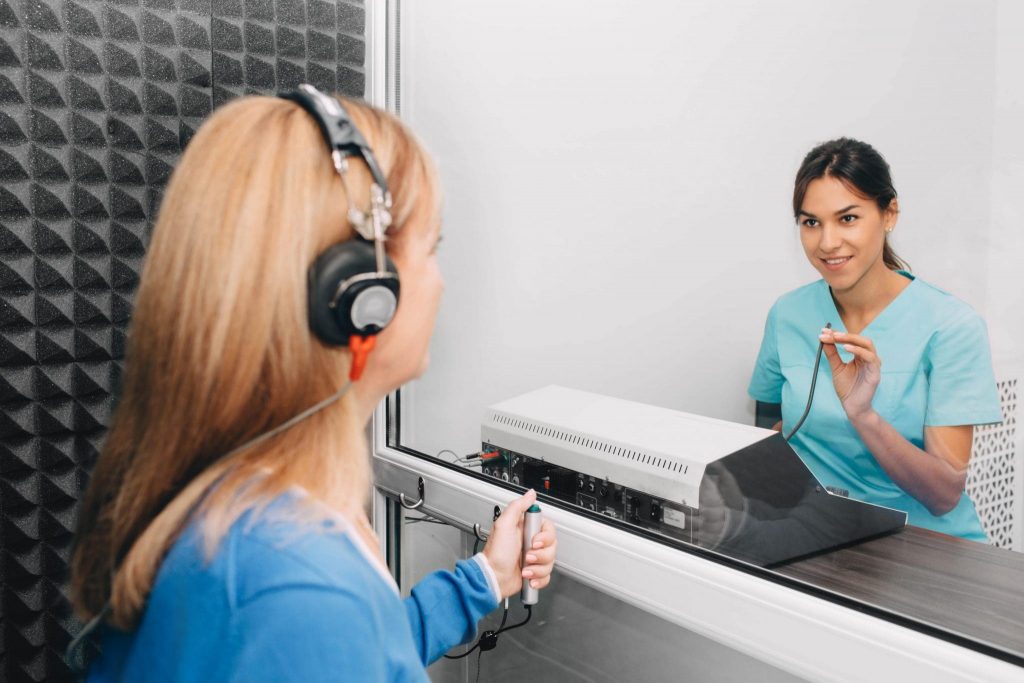If you’re in the midst of a January job hunt but none of the recruitment site options spark inspiration, a new career in audiology could be just what the doctor ordered.
Audiologists implement life-enhancing therapies for patients of any age with a wide variety of personal needs – so job roles in this sector really make a positive difference to people’s lives.
If this new direction sounds promising, consider our five steps to becoming an audiologist.
1. Find out if Audiology is right for you
Audiology might seem broadly interesting, but you’ll need to consider some specifics about the sector before committing time and money to taking the first steps towards a career.
According to the NHS careers guidance, here are a few things to think about:
- The average annual salary for an audiologist ranges from £24,214 at the start of a career to £43,772 at peak.
- You’ll need great verbal communication skills, a knowledge of psychology, sharp customer service skills and lots of sympathy and understanding.
- Daily tasks can include conducting detailed hearing checks including frequency range and sound level, adapting tests to suit the age and ability of patient, and assessing associated emotional, physical and medical symptoms.
- You could work in the NHS, in a private hospital or for a company that offers audiology services to customers.
If this list makes you feel like audiology is a good fit for your skills, personality and aspirations, it’s probably a career worth pursuing.
2. Get some Audiology voluntary experience
Applying for an audiology-related volunteer position with a government or third sector organisation provides the practical experience which could further convince you that it’s a fulfilling career choice and might make you a more attractive candidate for an entry-level job or university course.
There are a couple of ways to go about this – you can contact your local NHS trust to find out about opportunities at a hospital or health centre near you, or donate your time and energy to an established charity like Action on Hearing Loss.
Either way, you’ll be contributing to worthwhile causes while furthering your own vocational plans – a win-win that shouldn’t be ignored!
3. Consider Audiology course entry requirements
The next step is finding out about the course entry requirements in order to assess whether you’ve already got what you need or will need to gain some new qualifications before being accepted to the course of your choice.
Don’t worry about this process, because in many ways, courses for students at different ages and stages are more accessible than ever – for example, a traditional university course might require two or three A-levels including a science, whereas you could gain entry to a flexible FdSc with three GCSEs at grade C or 4 or above.
Alternatively, another option is securing a position as a trainee audiologist with a company and these roles are often advertised with national brands like Boots and Specsavers as well as their local equivalents. Mandatory qualifications vary, but most advertisements ask for a clutch of high level GCSEs that includes science subjects.
Once you’ve worked out that you can meet the entry requirements, it might also be worth joining an organisation like the British Academy of Audiologists (BAA) – it offers free online membership for students undertaking accredited courses, so you can benefit from advice and support from peers from the beginning of your career path.
4. Take an Audiology Foundation Degree
If you’re already working for an HCPC or RCCP-registered employer, with a supervisor who is a registered Audiologist and Hearing Aid Dispenser, taking a Hearing Aid Audiology FdSc course on a part-time, distance learning basis could further professionalise your career development.
This type of flexible two-year qualification has various benefits:
- You’ll learn the skillset of a qualified hearing aid audiologist while working and earning a salary.
- You’ll develop a deep understanding of the physical and psychological aspects of hearing disorders and their impact on people’s lives and the ethical and legal issues that relate to being an audiology practitioner.
- You’ll study via a blend of distance learning seminars and residential placements.
- You can register with the HCPC as a qualified hearing aid dispenser on graduation.
If financial and family responsibilities mean that you can’t study full-time, a foundation degree gets your career off on a firm footing.
5. Study for an Audiology BSc Hons Top-Up qualification
Once you’ve earned a qualification like a Hearing Aid Audiology FdSc, you might want to convert your foundation degree into a full BSc in order to climb the career ladder.
Enter the Audiology (top-up) BSc (Hons) – this work-based distance learning course can be completed on a one or two year basis and is designed for ambitious audiologists working in the NHS, private and independent sectors.
The course covers fascinating vocational topics like tinnitus assessment and management, managing clients with special needs, hearing in children and implantable hearing devices.
In terms of career-focused benefits, this top-up qualification will enhance your technical capabilities with devices and technology from major manufacturers, allow you to learn from leading academics and visiting industry experts, and develop specialist expertise during your substantive final project.
Audiology courses of this ilk can boost your CV and demonstrate diligence and discipline to employers, so they’re well worth the effort.
These five steps to becoming an audiologist make caring out a new career more manageable and provide a blueprint for a career migration that can banish the January employment blues – hopefully they motivate you to make your move soon.
For further career advice, take a look at the following blogs:
